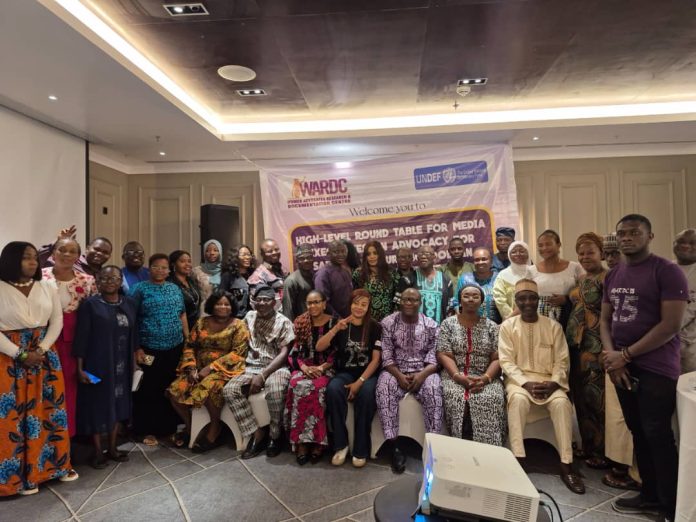By Joan Odafe/Oluwatope Lawanson
Women Advocates Research and Documentation Centre (WARDC), on Friday, urged all tiers of government to prioritise safety and security of schools across Nigeria through the passage of Safe School Declaration (SSD) Bill into law.
Mrs Jennifer Nwokedike, the Coordinator of SSD, made the call at a roundtable for media executives on advocacy for safe and secure schools in Nigeria.
The News Agency of Nigeria (NAN) reports that the Safe School project, spearheaded by WARDC, is supported by the United Nations Democracy Fund.
The coordinator said that the Safe School Project was aimed to ensure that schools in Nigeria, especially in areas at risk, would be safe and protected.
She added that the essence of the project was to ensure that children could continue to access education without fear of violence or attack.
According to her, the aim is to increase public awareness of the Safe School Declaration and hold the government accountable for implementing safe school policies in Nigeria.
“We have made significant progress, including increasing public awareness of SSD and developing a framework for its actualisation.
“The project has successfully increased awareness of SSD, particularly in Lagos State, Bauchi and Abuja.
“Also, a framework has been developed to help actualise SSD in Nigeria by strengthening partnerships among relevant stakeholders to ensure implementation of SSD.
On the progress of SSD Bill, Nwokedike said that the bill had passed the first reading at the National Assembly and was awaiting further action.
“The bill has gone through readings at the Bauchi State House of Assembly and is at the final stage of being passed.
“Likewise, the bill is awaiting presentation to the Lagos State House of Assembly,” she said.
The Director of Operation, WARDC, Mrs Mary George-Peluola, said the meeting was aimed at highlighting major safety concerns on schools.
George-Peluola said the roundtable was also to strategise for effective advocacy, develop plans for collaborative actions, particularly the role of the media in promoting safe school initiative.
A Deputy Director of Research at the National Human Rights Commission, Mrs Uche Okwuobi, said that continuous attacks on schools violated children’s rights.
“These attacks do not only disrupt education of the children, but also inflict lasting psychological trauma on them, their families and communities,” she said.
The National Network Coordinator of West Africa Network for Peacebuilding Nigeria, Dr Bridget Osakwe, said that schools should be sanctuaries, not places of fear.
Osakwe, who was represented by the Head of Programmes of WANEP, Mrs Patience Obaulo, said that issues, including violent attacks, bullying, drug abuse and kidnapping, had made many Nigerian schools unsafe.
“A safe learning environment enhances academic performance, reduces student dropout, promotes social and emotional development, and encourages peaceful co-existence,” she said.
Highlighting abduction since 2014, she said the Safe School Initiative, which was launched by the nation, was grounded in three pillars that would help to ensure safe learning facilities.
She added that it would enhance school disaster management, risk reduction and resilience education.
The Executive Director, International Press Centre, Dr Lanre Arogundade, emphasised the need for the government to prioritise safety and security of schools across the country.
According to him, practical actions are required to address the issue.
Arogundade suggested a multi-stakeholder approach involving state security forces, federal forces, community leaderships, traditional rulers and other stakeholders.
He said that solutions to the problem would vary across different parts of the country, requiring tailored approaches.
He stressed the need for
collaboration between security agencies.
“We need to see practical actions – involvement of community leadership, traditional rulers.”
He also emphasised the need for governments to commit resources to ensure school safety and security and develop solutions to address specific challenges. NAN















